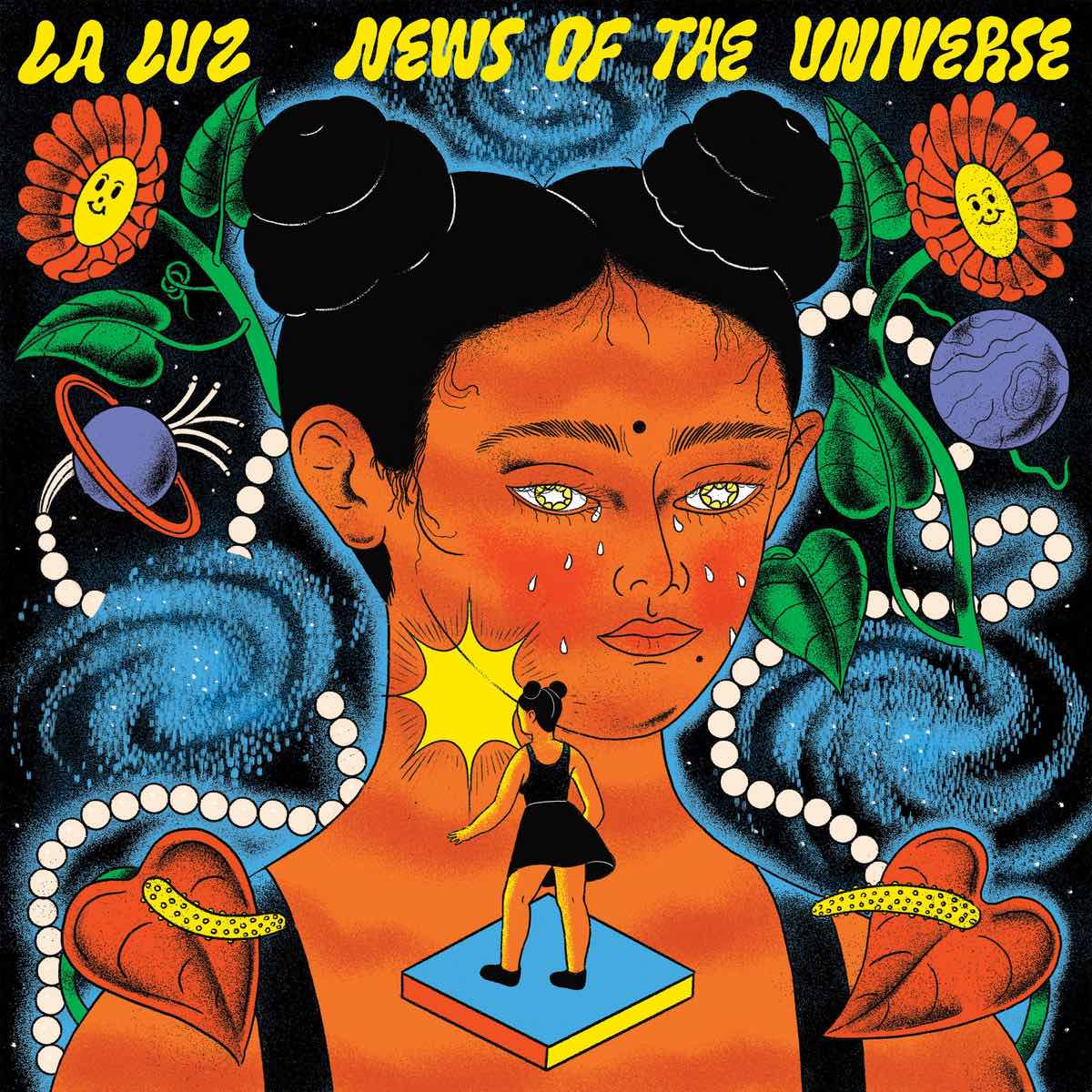La Luz
News of the Universe
SUB POP
It may have gone under the radar that Shana Cleveland has casually became one of the most consistent, prolific, and imaginative songwriters of the 21st century. She releases spectral lullabies and liturgies under her own name (see last year’s Manzanita) when not fronting her nine-to-fiver band of the past 12 years, La Luz, whose bigger arrangements sometimes belie the deep emotions that feed them. That’s particularly true of the California band’s fifth album, News of the Universe, hanging over which is a cloud of personal turmoil—namely Cleveland’s breast cancer diagnosis—plus a slew of lineup changes that play into the work’s preoccupation with change and sense of instability.
Playing to this point are the album’s extended instrumental sections. Most songs wander off into sunstroke reveries, all sparring guitars and warbling organs that seemingly emulate their writer’s meditative daze. The band dispenses with the economical approach of, say, 2018’s Floating Features, the peak of their “surf noir” sound. Here, even the more measured pop-rock cuts twist in on themselves—like “Always in Love,” which succumbs to a zig-zagging, tie-dye-drenched guitar solo. In some cases, whole songs are dedicated to escapism: The trance-like “Close Your Eyes,” for example, where the only lyric is “La la la,” the sing-song syllables we resort to when attempting to blockade the outside world.
Cleveland’s lyrics take detours, too. “Someone made a big machine that somehow makes the air more clean in Germany or something, I forgot,” she mutters on “Poppies.” This information is generated by the car radio, but the delivery of her recollection is as though she’s mustering small talk with the barista, or half-assedly willing herself to care about the banalities of global progress on top of everything else. And speaking of everything else—the “troubles stacking end to end”—Cleveland is also a new mother, and ostensible sleep deprivation imbues a track such as “Poppies,” with slouching minor chords like afghans draped over couches and tap-dancing marimbas off to the side like the flickering colors of a muted TV.
Introduced by Cleveland’s footsteps, the acoustic coda “Blue Jay” distills La Luz’s musical properties, laying bare her favored harmonic choices. She’ll take a chord and gently rock back and forth between its major and minor iterations, as though willing it to sleep; she’ll corrupt relatively commonplace progressions by adding one foreign chord. Accordingly, “Blue Jay” is also the moment Cleveland sits with her sadness, extracting comfort from acceptance. “Blue blue jay, nothin’ is going my way / Look how the water catches the light and watch as it goes down the drain,” she addresses the benevolent bird. “I lost control, but I never had it / Nothing will be the same.” At barely 90 seconds, the song is brief—an off-the-cuff afterthought—but it means the world and produces the strength to work with it going forward.









